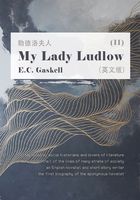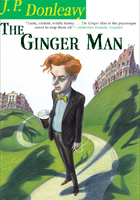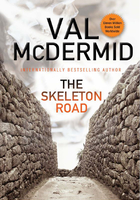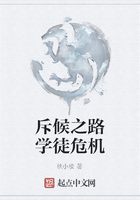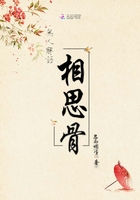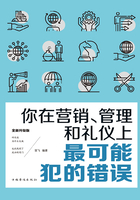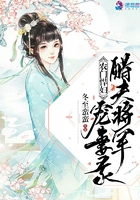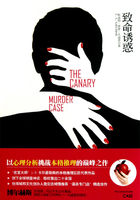Few letters between Abraham and Mary Lincoln are known to exist. One reason is that while preparing for their move to the White House in 1861, Mary, in a typical nineteenth-century action of "breaking up housekeeping," burned a number of personal letters and papers in the backyard. A neighbor stopped the destruction and took home some of the letters.[1] It also is known that the oldest Lincoln son, Robert, burned a number of family papers that he considered "purely private" and inappropriate for public reading.[2] Specifically, Mary wrote in the mid-1860s about having a box in which she kept the personal letters of her husband, which she would take out and read periodically.[3] These letters never have been found, and are exactly the type of materials Robert would have destroyed to protect his parents' privacy.
The majority of surviving pieces of correspondence between husband and wife are brief telegrams during the White House years. However, two wonderful pieces from 1848 do exist, and have become the most well-known and often-quoted letters concerning the marriage. They were written while Lincoln, then a member of the U.S. House of Representatives, was in Washington and Mary, four-year-old Robert, and two-year-old Eddie, were staying at the Todd home in Lexington.
They are sweet, chatty letters about simple family items: Lincoln buying socks for Eddie, asking how the boys liked the letters he sent them, and even flirting with Mary by asking about her weight; Mary wrote about her aunt and uncle, her stepmother ridding the house of a cat Eddie wanted to keep and his subsequent screams, and of making clothing for the boys. But they also show the love and passion between husband and wife, stated in words of longing to be together rather than apart.[4]
Abraham Lincoln was certainly a poet. He wrote poems, published at least one in the newspaper, and, as is universally agreed, his later writings and speeches as politician and president today are considered great prose poems.[5] Respected poet, historian, and academic Marion Mills Miller (who has his own poem on Mary Lincoln in this volume), even stated that had Lincoln chosen literature over politics as his life's work, he would have written some of the best poetry ever produced in America. As an example of Lincoln's inherent poetic nature, Miller poeticized the Gettysburg Address.[6] Likewise, Fred Kaplan, in his recent book, Lincoln: The Biography of a Writer, poeticized part of an 1859 Lincoln speech on agriculture.[7]
Lincoln's famous love letter to his wife, dated April 16, 1848, was not versified by him, but, when rearranged typographically, it is poetic. It becomes a free-verse poem filled with alliteration, assonance, and consonance, along with a liltingly anapestic rhythm punctuated with two iambic moments that slow the movement and enhance the emotion.
Dear Mary
From a letter by Abraham Lincoln,
April 16, 1848
In this troublesome world
we are never
quite satisfied.
When you were here, I thought
you hindered me some
in attending to business;
but now, having nothing but
business-no variety-
it has grown exceedingly
tasteless to me.
I hate to sit down and direct documents,
and I hate to stay
in this old room
all by myself.
Abraham Lincoln
Notes
[1] Carl Sandburg, The Lincoln Collector: The Story of the Oliver R. Barrett Lincoln Collection (New York: Bonanza Books, 1960), 71-72.
[2] James T. Hickey, "Robert Todd Lincoln and the 'Purely Private' Letters of the Lincoln Family," in The Collected Writings of James T. Hickey (Springfield: Illinois State Historical Society, 1990), 159-79; Jason Emerson, Giant in the Shadows: The Life of Robert T. Lincoln (Carbondale: Southern Illinois University Press, 2012), 403-4.
[3] "This morning I have been looking over and arranging a large package of his dear, loving letters to me, many of them written to me, in the 'long ago,' and quite yellow with age." Mary Lincoln to Mary Jane Welles, near Chicago, July 11, 1865, Turner and Turner, Mary Todd Lincoln, 257.
[4] Abraham Lincoln to Mary Lincoln, Washington, Apr. 16, 1848, Basler, Collected Works, I:465-66. Mary's response also exists: Mary Lincoln to Abraham Lincoln, Lexington, May-, 1848, Turner and Turner, Mary Todd Lincoln, 36-38.
[5] Abraham Lincoln, The Poems of Abraham Lincoln, Little Books of Wisdom Series (Bedford, Mass.: Applewood Books, 1991); James Raymond Perry, "The Poetry of Lincoln," North American Review (Feb. 1911): 213; R. Gerald McMurtry, "Abraham Lincoln: Poet," Lincoln Lore 529 (May 29, 1939) and "Lincoln: Poet or Rhymester?" Lincoln Lore 1484 (Oct. 1961); Jason Emerson, "The Poetic Lincoln," Lincoln Herald 101, no. 1 (Spring 1999): 4-12; Richard Lawrence Miller, "Lincoln's 'Suicide' Poem: Has It Been Found?" For the People: A Newsletter of the Abraham Lincoln Association, 6:1 (Spring 2004): 1, 6.
[6] Marion Mills Miller, "The Poetic Spirit of Lincoln," in Osborn H. Oldroyd, ed., The Poets' Lincoln (Washington, D.C., 1915), v.
[7] Fred Kaplan, Lincoln: The Biography of a Writer (New York: HarperCollins, 2008), 303.

